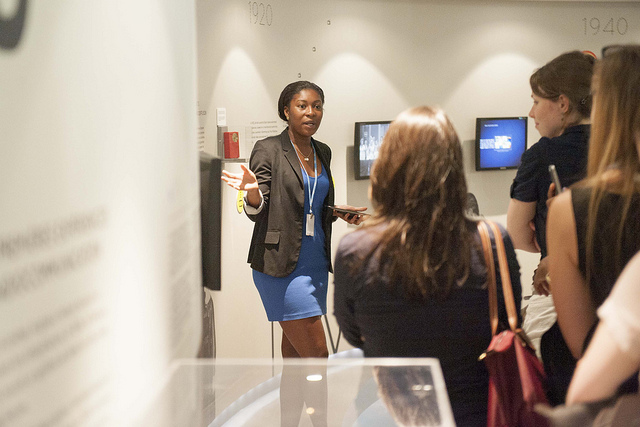
Hello, dear Graduate Student, and welcome to the club! According to U.S. Census data, only about 10 percent of Americans hold a graduate degree.
You got in! Congrats! But what now? Well, it’s going to be rough and I’m not going to sugarcoat that for you. However, as a McNair Scholar, I was well-prepared for my new adventures. I took classes, listened to lectures, attended mentoring sessions, and now I’m here to pass along the five most important lessons from my undergraduate preparation.
# 5: Understand that interactions between the people you learn with are going to be different.
Interacting with faculty members will happen on more level ground now and you will be treating your classmates like co-workers. In demeanor, you should hold yourself to a new standard of politeness, courteousness, and friendliness. Making enemies in your program will only hurt you. You also might want to hold yourself to a new level of dress, but this depends on your program. Thus far, I have encountered everything from business casual to jeans and t-shirts in the classroom.
#4: Remain confident in yourself and in your preparation.
You’ve been chosen for this program because of your academic prowess, so remember that. While some people may peacock their C.V. around like it’s a new car (and you are certainly welcome to do this), you can hold a quiet confidence knowing that you too have extensive qualifications. Don’t be afraid to talk openly and often about your research or career interests. Note that I did not say interrupt lectures to say that you published an article on this particular subject. Save that for interacting with faculty.
#3: Faculty contact: start early and often.
Not only are they a knowledge base for you to access for course information, but they are or were at one point where you are right now. Find a faculty member or two (or three) and ask them how they got to where there are: what school, what habits, road blocks, or challenges they faced that you should look out for. Become their mentee and/or their friend (yes, this is a thing you can do now). Mentoring is an essential part of graduate school that will benefit you in all sorts of ways.
#2: Surround yourself with excellence.
GenTwenty has already covered building a support system, but I’ll give you just a few tips about how to do this in your academic program. First of all, sit in the front of the class. This signals to the professor that you mean business, which means the people around you also mean business. Say yes to going out with people you don’t know. It’ll be scary, but worth it. Chances are something will happen whilst out at dinner that will help form an instant bond. Lastly, put yourself out there. Even though I am a textbook extravert, this is still scary for me to do. However, dear GenTwenty grad student, we must do this. Go to the department or grad school mixers–really, just go make new friends.
#1: Perhaps most importantly, give yourself time to adjust.
Don’t feel guilty about doing what seems like nothing during your first week in the new town or university. Chances are you moved to go to this school, or even if you didn’t physically relocate, and it’s a new mental environment. Take a moment to just sit and wrap your head around this new opportunity. You earned this. You have a wonderful journey in front of you, dear reader, so take some time to celebrate.
So there you are, those are my tips, but what are yours? I’d love to hear if you have some invaluable information that I didn’t mention. Good luck out there and go get ‘em!
